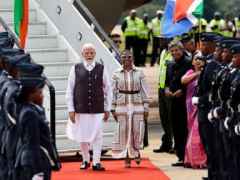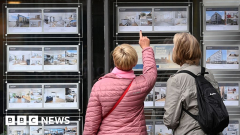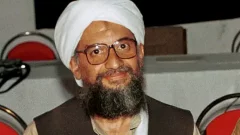JOHANNESBURG — World leaders arrived Friday for a historic first Group of 20 summit in Africa that aims to put the problems of poor countries at the top of the global agenda but has been undermined by a rift between host South Africa and the United States over a Trump administration boycott.
The weekend summit in Johannesburg will be attended by delegations from 18 of the world’s richest and top developing economies — minus the U.S., which has branded South Africa’s hosting a “disgrace ” and won’t participate in the talks.
The boycott by the world’s biggest economy and founding G20 member was ordered by U.S. President Donald Trump over his claims that majority-Black South Africa is persecuting its white Afrikaner minority.
Strong U.S. opposition threatens to undercut South Africa’s chosen agenda for the summit, where the host wants to focus world leaders’ attention on issues like the impact of climate change on the developing world, debt burdens for poor countries and widening global inequality.
Monthslong diplomatic tensions between the U.S. — which takes over the G20 presidency after the summit — and South Africa worsened this week when South African officials said Washington was trying to pressure it to not issue a leaders’ declaration at the end of the summit in the absence of an American delegation.
South African President Cyril Ramaphosa responded: “We will not be bullied. We will not agree to be bullied.”
A leaders’ declaration is the traditional climax of G20 summits and details any broad agreement reached by the members, though it’s not a binding document. The bloc has often struggled to put words into action due to the different priorities of members like the U.S., China, Russia, India and countries in Western Europe.
The G20 has expanded to 21 members, 19 nations plus the European Union and African Union, and is meant to bring rich and poor countries together to tackle problems, especially around the global economy.
Leaders of the United Nations, the World Bank and other international institutions also traditionally attend the summits as guests and U.N. Secretary-General António Guterres will be in Johannesburg.
The U.S. boycott of this G20 is viewed as an example of Trump’s criticism of multinational organizations, having pulled the U.S. out of the Paris climate agreement and the World Health Organization.
But other leaders have traveled to Africa’s most developed economy hoping to find common ground, especially around new trade deals in the wake of U.S. tariffs.
“The African states are searching for partnerships,” German Chancellor Friedrich Merz said, “and so I will go to Johannesburg in any case and hold talks there. … I expect that we will return to Germany with good re





